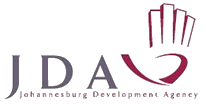Nearly R6-billion will be invested in cities over the three-year spending period, most of which will be earmarked for supporting municipal services and infrastructure.
RESHAPING South Africa’s urban environment through integrated spatial planning was a priority identified by Finance Minister Nhlanhla Nene in his maiden Medium Term Budget Policy Statement, tabled in Parliament on 22 October.
He spoke about the focus of the National Development Plan, a road map to Vision 2030, on growth and redistribution; reducing unemployment and poverty; and transforming the country’s social and economic order. The running of transport, energy and communication networks, and the management of cities and local government were seen as key to such transformation. “We will support cities to improve living conditions, modernise transport and communications infrastructure, expand the urban economy and promote trade and investment. Government will work with development finance institutions to increase investment in the urban landscape,” Nene said.
In a medium-term budget widely noted for its austerity, the minister pointed out that its strategic aims would have financial and budgetary implications. He hinted at big tax increases next year, and spoke about yet another round of cuts in government spending. It must cut all unnecessary spending to deal with state indebtedness and a lower-than-expected tax revenue. He also spoke about expanding the municipal debt mark.
Three areas of focus for the next three years were highlighted:
- Building capacity and strengthening accountability of the public sector, particularly at local government level;
- Reshaping South Africa’s spatial landscape, including investing in dynamic city development, integrated housing and transport programmes; and,
- Support for business activity and job creation.
During this time, the state would roll out a new approach to local government infrastructure financing. Incentives would encourage large urban municipalities to promote more compact, efficient and equitable cities. The idea is that well-planned and well-managed urbanisation can accelerate economic growth, and the strategy encourages a greater integration of residential areas, employment and trade.
Much of the work of the Johannesburg Development Agency addresses these areas, particularly regarding the City’s Corridors of Freedom programme and transit-oriented development strategy. The JDA has identified hubs along various transport routes where development will be encouraged. Working in tandem with the agency, Joburg’s Rea Vaya Bus Rapid Transit system is also helping to change the urban landscape and boost access to affordable and reliable public transport.
Johannesburg’s vision of creating a city that is resilient, liveable, sustainable and underpinned by infrastructure supportive of a low carbon economy will be advanced following Nene’s promise that reviving investment in cities would be one of three priority spending areas. Over the three-year spending period, more than R560-billion is expected to be allocated to this function, with most of the funds supporting municipal services and infrastructure.

